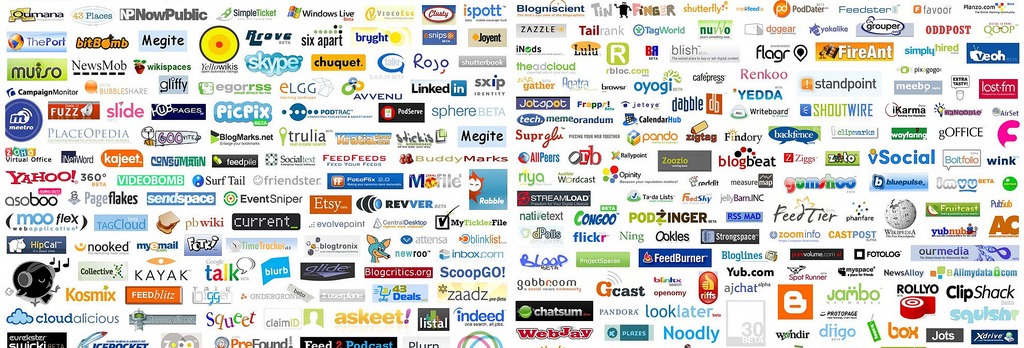On today’s scaremongering menu: Is the internet making us stupid? To which one could naturally reply: when were we ever smart?
You must’ve heard this theory before, it has been on the airwaves for quite some time. It seems a study is released monthly proving that we are not neurologically equipped to adapt to new technologies, in fact these are atrophying our brain cells.
Most recently, Nicholas Carr – author of “What is the internet doing to our brains”, also known for his 2008 essay “Is Google making us stupid?” – spoke at last month’s World Computer Congress in Brisbane warning the audience of how “the internet, and social networking sites such as Twitter and Facebook in particular, are distracting and creating a society of disengaged communicators”.
Nicholas Carr is the most prominent information revolution naysayer, and describes the general process as he experienced it:
“Over the past few years I’ve had an uncomfortable sense that someone, or something, has been tinkering with my brain, remapping the neural circuitry, reprogramming the memory.”
The issue at hand is not just stupidy, as hard to define as it is, but the ability to concentrate. It seems new technologies, such as smartphones, laptops and iPads and the exigency to multitask online are making us unable to focus on one thing at a time. We are now, so they claim, unable to read a book, listen to a whole album, study, rest our brain and share a common experience, as with normal social relations. We can’t concentrate, we have no long-term memory and we can’t think for ourselves. In fact, we’re “outsourcing memory function and thought to Google and email” says columnist Leon Gettler.
According to New York Times technology reporter Matt Richtel – Pulitzer Prize winner for “Driven to distraction” an article exploring the risks on texting whilst driving – being permanently plugged-in encourages voluntary information overload. This is a byproduct of our new multitasking culture, in fact we’re now consuming “three times the amount of information we consumed in 1960″.
Microsoft has also released a study claiming that 9 out of 10 European youths, between the age of 16 and 24, tend to watch TV and surf the internet simultaneously. A 2009 study by Stanford University assessing the capability to concentrate on two groups of people labelled as “multitaskers” and “non-multitaskers” found that the first group failed on every intellectual account. The conclusion of the study was that “people who are regularly bombarded with several streams of electronic information do not pay attention, control their memory or switch from one job to another as well as those who prefer to complete one task at a time”.
According to University of California study, excessive smartphone use ends up depriving the brain of much needed downtime when plowing through emails, text messages, the news, Twitter, our Facebook wall, a TV program and whatever is happing around us.
These studies are quoted on Wired.com’s article “Help! My smartphone is making me dumb”, along with research paper on the cognitive effects of our digital culture on children [PDF]. The researchers reach an interesting conclusion:
“One can no more ask, ‘How is technology affecting cognitive development?’ than one can ask, ‘How is food affecting physical development?’. As with food, the effects of technology will depend critically on what type of technology is consumed, how much of it is consumed, and for how long it is consumed.”
Essentially, as long as you do something, anything, in moderation, you’ll survive. What I have classified as an alarmist thought is obviously based on neuroscientific truths, and as much as it is a useful omen of what is happening to our passive and subdued society, it is also an axiomatic argument that can easily be used and abused by luddites, who will effortlessly recycle it by making broad-brush indictments of digital technology and culture.
After all, the same alarm was given when TV and the written word were popularised. According to Socrates writing would make humans dependent on things external to the mind. Can you deny this has happened? Furthermore, one of the first detractors of multitasking was a Roman slave that went by the name of Publilius Syrus. He said: “To do two things at once is to do neither”. True? It depends. As Nicholas Carr himself pointed out, the invention of the mechanical clock has also revolutionised the way we organise ourselves as a society, as the “abstract framework of divided time became the point of reference for both action and thought.” The internet’s particular case in point is, however, different – because technology is creating new ways in which content can be consumed faster than our consumer brains can adapt.
The point is not whether the theory is right or not, but can you halt technological progress? The answer is you simply can’t. Unless we reach a point where we are so ‘deconcentrated’ that we have become intellectually unable to invent anything new. Assuming that’s the worst case scenario, it’s a win-win situation. What we have learnt from cultural shifts such as this one, is that brains are incredibly malleable, and they fail as easily as they succeed.
If you were to believe everything you read in the papers, the Internet itself would appear as a mass murderer. It’s killing intellectual property (conversely, intellectual property is killing the internet), our culture, privacy, newspapers, journalism, the music industry, the film industry, the porn industry, the economy, letter writing, your lunch break and much more. The massacre shall end, just as soon as the web dies too, as Chris Anderson – just as loftily as Nietzsche once proclaimed God was dead – announced this summer.
And now our mind. The only thing that seems to be still alive and kicking is chicken little tabloid journalism.
via owni.eu

Comments
Post a Comment